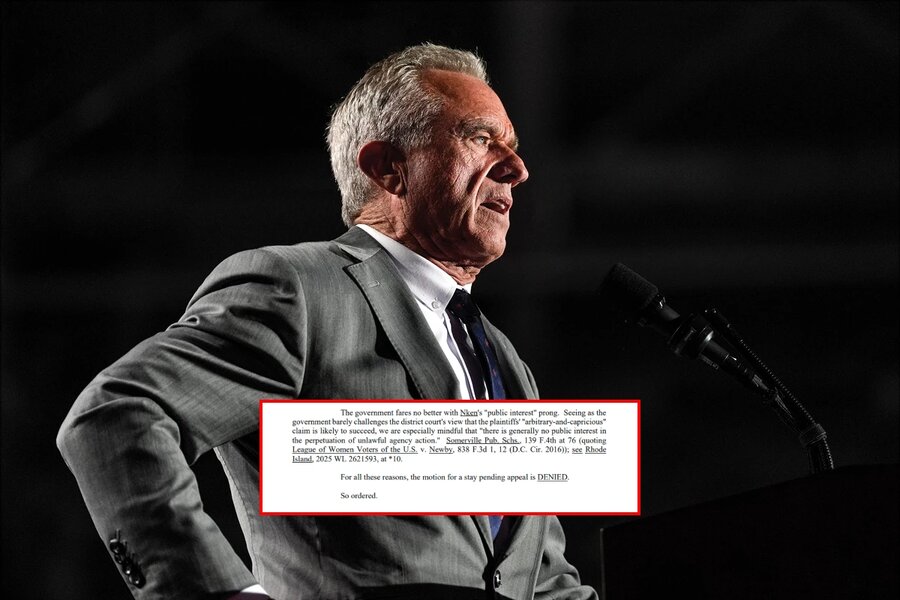A federal appeals court on Sept. 17 declined to lift a preliminary injunction blocking a plan by Health and Human Services (HHS) Secretary Robert F. Kennedy Jr. to overhaul the department in line with the Trump administration’s policy priorities.
Attorneys general from 19 states and the District of Columbia filed a lawsuit in May challenging Kennedy’s restructuring of HHS, including layoffs and the reorganization of several agencies, arguing that the changes violate federal law and the U.S. Constitution.
On Wednesday, a three-judge panel of the Boston-based First U.S. Circuit Court of Appeals rejected the Trump administration’s claim that the states could not show they would be immediately harmed if the injunction were lifted pending an appeal. The panel noted that the lower court relied on hundreds of pages of testimony from state officials.
“The government does not explain how the district court clearly erred in crediting these uncontroverted facts,” the court said in an unsigned order.
Kennedy announced on March 27 that his department would “streamline the functions” of its federal workforce by consolidating subagencies, reducing the number of regional offices, and implementing a reduction-in-force plan that would impact 10,000 HHS employees. They were all offered buy-out options to incentivize them to quit ahead of the announced job cuts.
The restructuring plan looked to streamline 28 divisions into 15, and close half of the department’s 10 regional offices. Four HHS sub-agencies were named in the restructuring: the Centers for Disease Control and Prevention, the FDA’s Center for Tobacco Products, the Administration for Children and Families’ Office of Head Start, and the Office of the Assistant Secretary for Planning and Evaluation (ASPE).
Attorneys general filed a lawsuit in federal court in Rhode Island challenging the restructuring plan. Plaintiffs said the executive action violated the Administrative Procedure Act and exceeded the scope of executive authority, violating the Constitution’s separation of powers doctrine and appropriations clause.
They also pointed to potential harms their states would face if the executive action were allowed to proceed, saying their agencies would be unable to conduct sufficient laboratory testing or process critical health data needed to track infectious diseases and improve maternal and infant health outcomes.
They added that the reforms would create financial strain, forcing the states to cover funding gaps left by the pullback in federal resources.
Share your thoughts by scrolling down to leave a comment.













